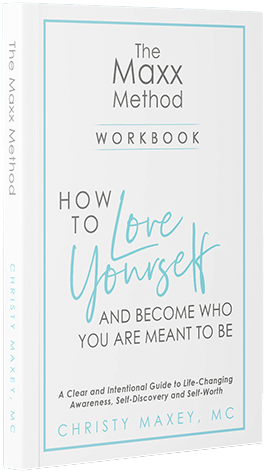Let’s face it, there is a lot of craziness going on in the world today. Life is showing up, and unfortunately, leading to higher rates of loneliness, depression, anxiety, stress, and conflict.
Many of us are in need of help, support and healing.
In the midst of all the upheaval, in terms of mental health, we are finally evolving as a society and there are many opportunities to obtain information, support, healing and professional help.
However, in the middle of this evolution, we are going through some serious “growing pains.”
Personal Development is everywhere now…where do I get help? Who do I go to? Is personal development part of mental health? So many questions and so much confusion.
I love that we are evolving as a society with regard to personal development and mental health awareness and education, but we have some things to sort out and we have some catching up to do.
Until recently, most often everything has been under “mental health” and seeking help from the “mental health system.” That system has proven to be confusing at best, resulting in a common theme of questions: Do I see a counselor, a therapist, a psychiatrist, or a psychologist? How do I find one? Do I get therapy or medications? Does this mean I have a mental illness?
As we evolve, personal development, life coaches, mindset coaches and all types of random “coaches” are popping up EVERYWHERE!
Believe me I know. I transitioned from therapist to coach and now I get to compete with celebrity armchair gurus such as Tony Robbins, Mel what’s her name, Gabby Bernstein, and every other Tom, Dick and Harry (and their mother) out there. You know, the ones who went to therapy and now can help you because of their savvy marketing message: “I suffered like you are and look at me now… I’m in Bali traveling the world. Life is awesome. You can have this too for $10,000 for my 8-week program.” Okay, you’re right, I’m bitter. Guilty as charged.
But, I’m not here for me, I’m here to try and clear up the confusion for all of you.
10 tips for breaking through the personal development system and getting the help you need:
- “Mental health” refers to a person’s condition with regard to their psychological and emotional well-being. End the stigma of mental health awareness because this applies to each and every one of us.
- “Mental illness” refers to disturbances in psychological and emotional health that warrants a mental health diagnosis, all of which are listed in the DSM-5. If you are seeking help for a mental illness, you will need to see a licensed therapist, licensed independent social worker or a licensed psychologist. They do not provide medication. They will work with you to treat the mental illness. If you are looking for medication for a mental illness, you will need to see a psychiatrist. Each of these licensed professionals can be found by asking for referrals from your primary care doctor or your insurance. End the stigma here also, because none of us are exempt, given the right life experiences and environment. It’s sort of like the medical version of cancer. It could happen to any of us.
- What I love most about personal development is that it can often prevent mental illness. You know the saying “education is prevention.” According to Wikipedia, personal development consists of activities that develop a person’s capabilities and potential. The purpose of personal development is to “enhance a person’s quality of life and the realization of dreams and aspirations.” Any skilled, qualified personal development coach will also look at enhancing psychological and emotional well-being (mental health) in order to improve self-esteem, emotional intelligence, heal the past, improve relationships, etc.
- If you want to use your medical insurance for payment, you will need to see a licensed therapist/psychologist. They are required to document a diagnosis code on your insurance paperwork in order to qualify for that insurance third-party payment.
- Some Health Savings Accounts (HSA/FSA) pay for coaching and personal development. You can check with your specific program.
- Once you decide if you are seeking help with a mental illness or personal development, get referrals. Research online. Ask for referrals from people you know. Get 5 names and contact them to begin the screening process.
- Ask questions – don’t be afraid to ask anything. Let them know what you are needing help with. Ask them specifically how they will help you. Do they have a process, a methodology or use evidenced-based modalities? Skilled coaches and therapists will invite your questions and will be able to explain what they do and how they will help you. They will validate and encourage all your questions.
- Choose someone you begin to feel comfortable with, who has a plan of how they will help you, and can explain it to you in a manner that is easy to understand.
- After the first session, you hopefully will feel some relief and excitement and more importantly, hope about the process and your future.
- If you ever feel like not enough is happening in your sessions and/or you are not getting what you need, then it’s best to look for someone else. You can certainly bring it up with them if you like. I suggest attending two sessions at the most, if you’re not getting what you need. Find someone else!
I hope this helps. Please reach out if you have any questions. Email me at christy@christymaxey.com and I’ll personally respond.
Keep going….
With compassion


